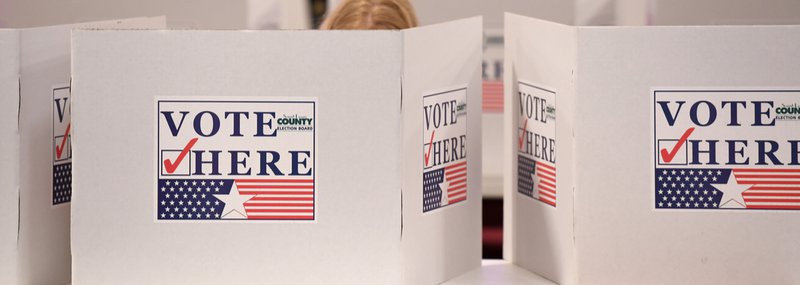The Hottest Political Reform of the Moment Gains Ground
In The News Piece in POLITICO

April 16, 2023
Lee Drutman and Maresa Strano's report on ranked-choice voting was discussed in a POLITICO article.
It’s hard to believe that ranked choice voting can do everything that its partisans attribute to it — prevent unpopular figures from winning, allow previously marginal candidates to get elected, subdue the power of political parties and reduce polarization and extremism. Some of these things may not even be worth achieving. Real majorities, after all, have elected illiberal populists in India, Brazil, Poland and Hungary; Trump would have been no less dangerous a figure had he won 50.1 percent rather than 46.1 percent of the vote in 2016.
Massey stoutly insisted that Trump couldn’t have won a majority, but that’s the kind of blind-faith assumption that progressives often make about their fellow Americans. That said, the case that Koran and his Republican colleagues have mounted against ranked choice voting, which is chiefly that it’s too confusing for voters, is not terribly convincing either; as Maureen Reed likes to say, even her 4-year-old grand-nephew knows how to rank things. The harder question is whether ranked choice voting has and will achieve as much as the activists and beneficiaries think it can.
Political scientists have their doubts. A 2021 study by Lee Drutman and Maresa Strano on the cities and states that use ranked choice voting concludes that “the benefits of RCV outweigh the downsides,” but that those benefits “appear to be more marginal than many had initially hoped.” While accepting that “elections with RCV are more civil, and less nasty,” they write that “it is unclear whether the system has any impacts on who votes, who runs, or how governing works.” Drutman and Strano found little evidence that ranked choice voting tips elections to more moderate candidates, but some signs that it helps women and minorities. They caution that ranked choice voting may simply be too new for its effects to fully register. Jonathan Rauch, an expert on democracy at the Brookings Institution, is less equivocal about ranked choice voting. “I predict that you will find that in most places it would make a modest difference,” he told me. “I think it’s been way overhyped and you can add as many ‘ways’ there as you’d like.”
And yet … shouldn’t ranked choice voting work, above all in drawing the poison from our elections? Larry Diamond has written that the system could pull American politics out of its “death spiral” by giving candidates incentives to “craft broader appeals.” (Diamond advocates a suite of reforms, including eliminating the Senate filibuster, instituting mandatory national voting, full federal funding of elections, nonpartisan primaries and the like.) That was Peltola’s experience; and she’s not alone. In 2021, the Virginia Republican Party decided to choose its gubernatorial nominee by ranked choice voting rather than by traditional primary. This had the ancillary virtue, at least for moderates, of diminishing the prospects of Amanda Chase, who had defended the Jan. 6 rioters and called herself “Trump in heels.” The election attracted 17 candidates, in part, according to Chris Saxman, a GOP state legislator, because entering was so much cheaper than a traditional primary or convention would have been. Glenn Youngkin, a relatively moderate businessman, emerged victorious and then went on to win the governorship in an upset.
What really mattered, according to Saxman, was that ranked choice voting “toned down the negative attacks.” The effect was that “the party came out much more unified much quicker.” Youngkin had very low unfavorable ratings. Saxman feels certain that he would not have won had the party held a typical primary or convention. And yet, he concedes, his fellow Republicans have no interest in drafting state legislation to institute ranked choice voting. Ranked choice voting, he says, has become a target of “fearmongering by conservatives,” who warn that it will lead to the election of anti-Trump figures like Lisa Murkowski.